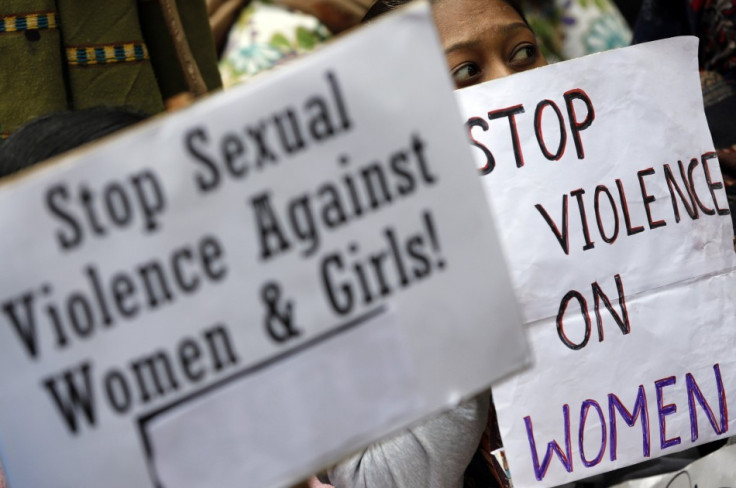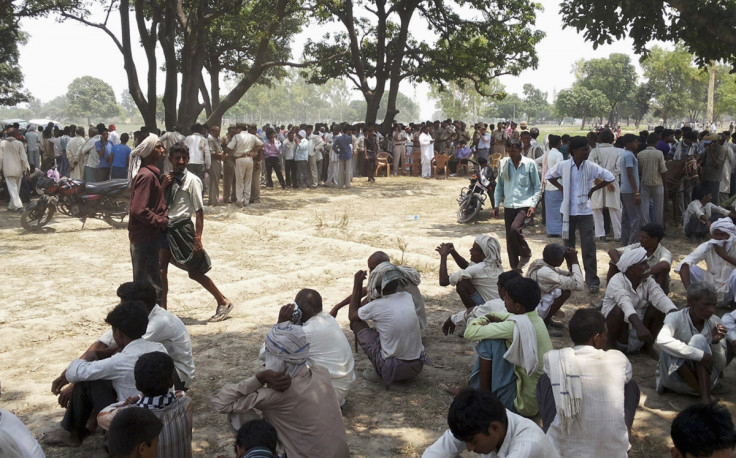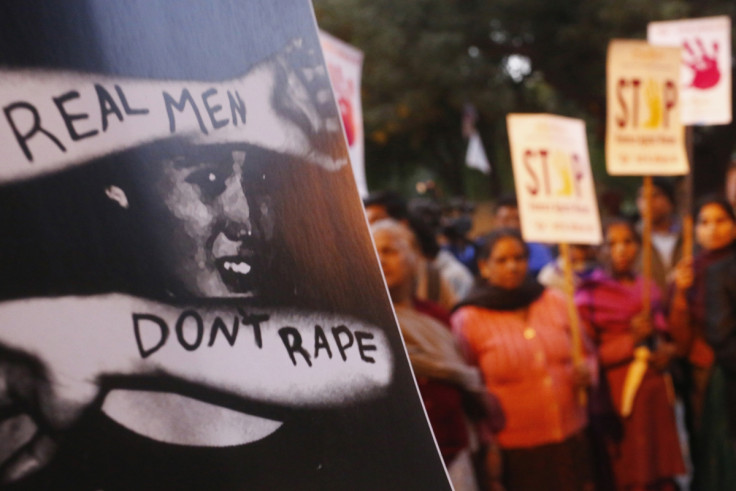India Gang Rapes: How Police Reflect a Culture of Tolerance

India is reeling after it was revealed that two teenage girls, sisters from a low caste, were gang raped and hung from a mango tree in the state of Uttar Pradesh.
Hundreds of residents of Katra village spent the day in silent protest over alleged police inaction. Graphic images emerged of villagers sitting under the girls' bodies as they swung in the wind, preventing authorities from taking them down until the suspects were arrested.
Three men, including one policeman who was detained for conspiring with the suspects and for dereliction of duty, have been arrested in connection with the incident so far. And another two suspects are being hunted. As reported by the BBC, the father of one of the girls said that the police "refused to look for my girl" when he reported her missing, because he was of a lower caste.
Since the widely publicised gang-rape of a unnamed 23-year-old medical student in Delhi in 2012, India has tightened its anti-rape laws. Nationwide protests after the incident led to gang rape being punishable by death, and the parliament introduced stricter legislation on sexual harassment. Yet records state a rape is committed every 22 minutes in India: a country with 1.2 billion people.

Rape is one of the most common crimes in India. According to the National Crime Records Bureau, 25,000 rape cases were reported in 2012, of which 24,470 were committed by a relative or neighbour. Around 98% of reported rapes were carried out by men.
These figures are believed to underrepresent the number of attacks, as activists say many cases go unreported. The families of victims – and police – often encourage victims to keep quiet, and those who report the crime are derided.
Such failures in policing render the progress of new legislation against sexual violence futile, and prosecutions are rare. Although the government created fast-track courts in Delhi to deal with rapes, they are overflowing and trials remain achingly slow. And, as with domestic violence in the UK, improvements in legislation are only viable if the culture of tolerance is eliminated. This requires changing the priorities and attitudes of law enforcers as well as the general public.
But the problem in India runs deeper. An entrenched culture of tolerance towards sexual violence means that despite government efforts since the 2012 case, the number of rapes is growing while prosecutions remain low. Experts say there is an established sense of impunity among aggressors – as evidenced in the latest case, as the bodies of two young girls were left hanging in public, left behind by their attackers.
The subordination of women, according to Dr Purnima Nagaraja, a psychologist who has worked with survivors of rape in Delhi, is one of the main reasons behind the frequency of the attacks.
"In India, men rape because it's a manly thing to subjugate the weaker sex," she told the Washington Post. "Our culture puts so much emphasis on being a man, which creates huge insecurities for men as they see women's status rising in society."

Class is also intertwined with the problem, and divisions between India's castes are deep-rooted.
According to Nagaraja, young men rape for sport because they resent the "economic disparity between the rich and the poor", and in rape cases in New Delhi the migration of uneducated migrants from rural areas to cities can leave men feeling removed from the patriarchal society of village life.
Assaults are frequently carried out on poor women and Dalits in Uttar Pradesh, a community previously called the untouchables, who are at the very bottom of the Hindu caste system. In 2011, SR Darapuri, vice president of the People's Union for Civil Liberties revealed that of attacks in the area, "90% of victims were Dalits and 85% of Dalit rape victims were underage girls".
In the most recent case, although both the victims and the accused belonged to a caste grouping officially classed as Other Backward Classes (OBCs), the girls were of a lower denomination. They had reportedly gone outside to relieve themselves, as there was no toilet in their home – highlighting the lack of sanitation in rural areas as a risk to women's safety.
Campaigners say Dalits are often the victims of sexual attacks and that the police are often slow to respond. Beena Pallical, of the National Campaign on Dalit Human Rights, said both assaults and the lack of intervention of the authorities was creating a "neverending circle".
"The violence keeps coming no matter what we do," she said. "Every institution in this country is biased, so where do we go?"
Although steps are being made to address the situation, and women's rights activists are becoming more prominent in the country, there is a long way to go.
Last month, the head of the Samajwadi Party in Uttar Pradesh told an election rally that he was opposed to gang rapists being executed.
"Boys will be boys," Mulayam Singh Yadav said. "They make mistakes."
© Copyright IBTimes 2025. All rights reserved.




















